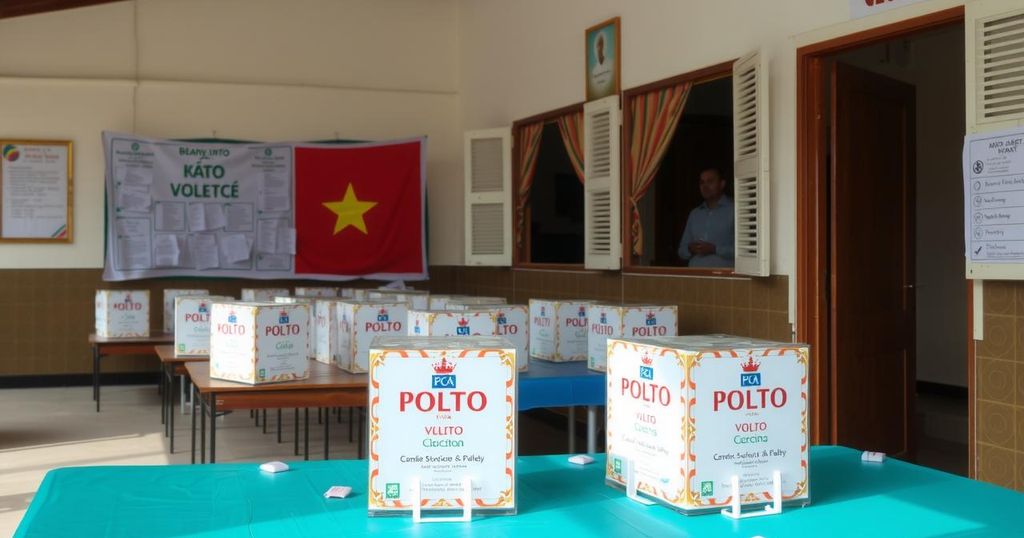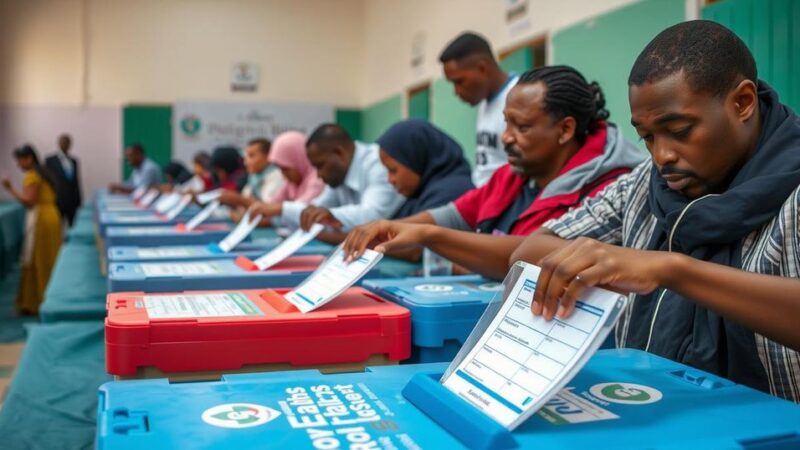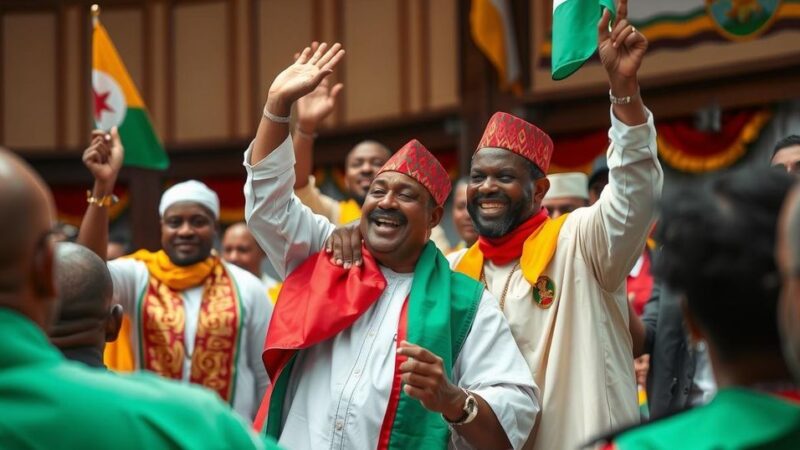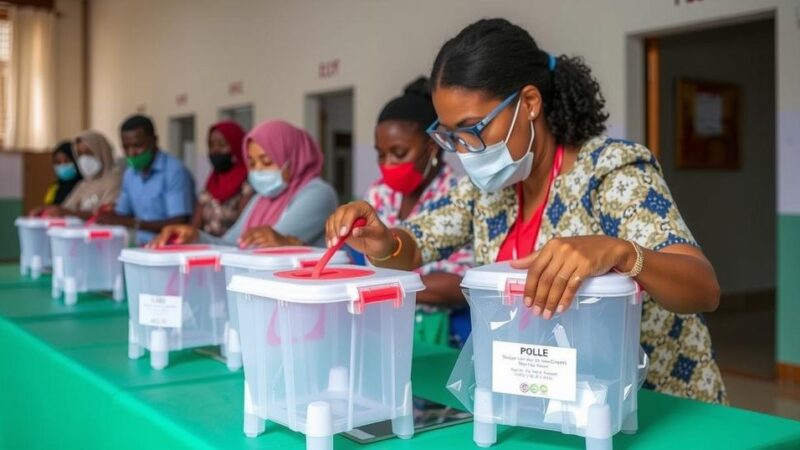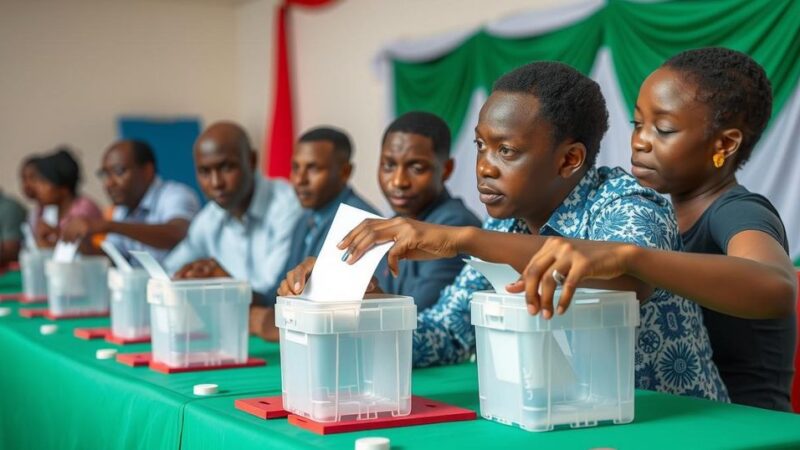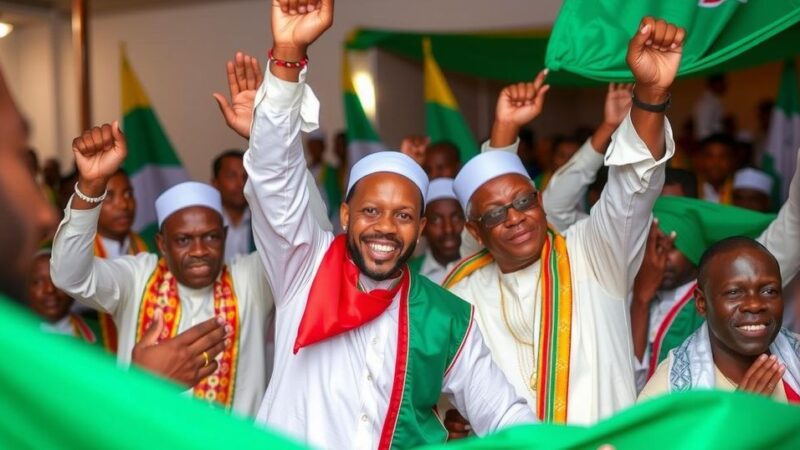Voters in Comoros are electing members for a 33-seat parliament amid allegations of previous electoral irregularities. Approximately 338,000 registered voters are participating, with nearly 100 candidates contesting. President Azali Assoumani faces opposition claims of authoritarianism and possible plans to elevate his son to power. Opposition factions display divided strategies regarding participation, with election results expected by Friday.
On Sunday, voters in the Comoros archipelago cast their ballots to elect representatives for the country’s 33-seat parliament. This election comes a year after President Azali Assoumani was re-elected amid allegations from the opposition of significant electoral irregularities, accusations which governmental officials have firmly rejected. With approximately 338,000 registered voters and polling stations opening early, the electoral process is underway in the wake of a parliamentary election last held in January 2020.
The Comorian Supreme Court has endorsed nearly 100 candidates for this election. However, President Assoumani faces criticism from his opponents, who accuse him of authoritarianism and question whether he is grooming his eldest son, Nour El-Fath, for succession after his term concludes in 2029. Since his rise to power via a coup in 1999, Assoumani has participated in three electoral battles, most recently increasing his son’s authority for governmental coordination in 2024.
While certain opposition factions, including the Juwa party led by former President Ahmed Abdallah Sambi—who is serving a life sentence—have called for a boycott of the elections, others oppose this strategy. Hamidou Karihila, a candidate representing the opposition Hope of the Comoros party, expressed, “The Azali regime is weakened… by participating in these elections we are contributing to further exposing the flaws in its system and accelerating its inevitable fall.”
The results of this crucial electoral exercise are anticipated by Friday.
The upcoming elections in the Comoros occur within a complex political context marked by President Azali Assoumani’s extended rule since 1999 and ongoing concerns regarding democratic processes. The last parliamentary elections took place in January 2020, and since then, Assoumani’s administration has faced significant scrutiny over alleged authoritarian governance. The current election is seen as a critical juncture, with opponents fearing a dynastic power transition to his son. This adds layers of tension to the electoral process, further complicated by calls for boycotts from some opposition factions.
In conclusion, the parliamentary elections in Comoros represent not only a pivotal moment for governance in the nation but also a challenge to the existing political order established by President Azali Assoumani. As candidates vie for assembly seats, the implications of this electoral event extend beyond immediate outcomes, potentially shaping the future political landscape and governance dynamics within the archipelago.
Original Source: www.canberratimes.com.au

